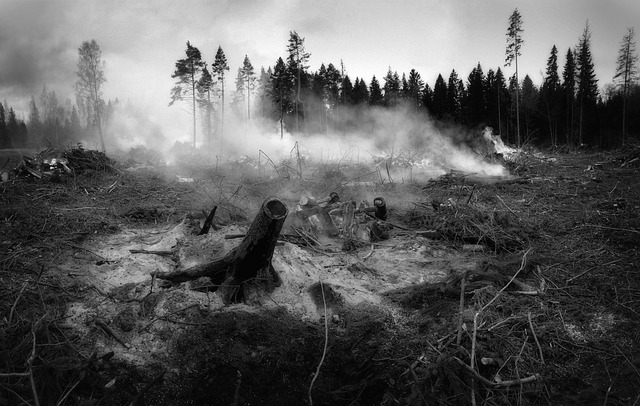The Environmental Impact of Wildfires on Climate Change
Wildfires have become a devastating reality in many parts of the world, and their impact extends far beyond the immediate destruction of forests and habitats. As residents of a planet facing unprecedented environmental shifts, we can’t ignore the profound connection between wildfires and climate change. The burning of vast areas not only releases harmful emissions but also catalyzes a vicious cycle that exacerbates our already fragile climate.
The Devastation of the Land
When wildfires ignite, they leave behind a scene of charred earth and lost ecosystems. Vegetation that once absorbed carbon dioxide is razed to the ground, and as this carbon is released back into the atmosphere, it plays a significant role in the greenhouse effect. Approximately 20% of global carbon emissions can be linked directly to wildfires, illustrating just how crucial these events are in the narrative of climate change.
Changing Weather Patterns
The aftermath of wildfires can alter local weather patterns. The heat generated from large fires can create updrafts that lead to *dry lightning*, a phenomenon that can spark new wildfires. Additionally, the loss of trees diminishes rainfall patterns, further resulting in a cycle of drought and increased fire risks. As we witness more extreme weather events, the link between wildfires and climate change becomes glaringly evident.
The Human Element
Wildfires don’t just impact the environment; they affect millions of lives. Communities face health risks from smoke inhalation, property loss, and the mental toll of displacement. As fires grow larger and more frequent, the urgency to address the root causes of climate change becomes more pressing. Individuals grapple with a sense of helplessness as they watch their surroundings transform, prompting a deep-seated need for action.
Global Consequences
The repercussions of wildfires extend far beyond the immediate area they affect. The smoke from these fires can travel thousands of miles, deteriorating air quality in distant locations. Countries can experience shifts in climate patterns, agricultural disruptions, and heightened living costs. It is a interconnected world, and the intensification of wildfires demonstrates just how our actions are woven into the fabric of global environmental health.
Taking Action
Addressing the issue of wildfires and their connection to climate change requires a multifaceted approach. Sustainable land management practices, reforestation efforts, and innovative firefighting techniques are just the beginning. Public awareness and education play crucial roles as well; empowering communities to take preventative measures can make a significant difference in reducing wildfire occurrences. Collectively, we must confront these burning issues with urgency and determination.



